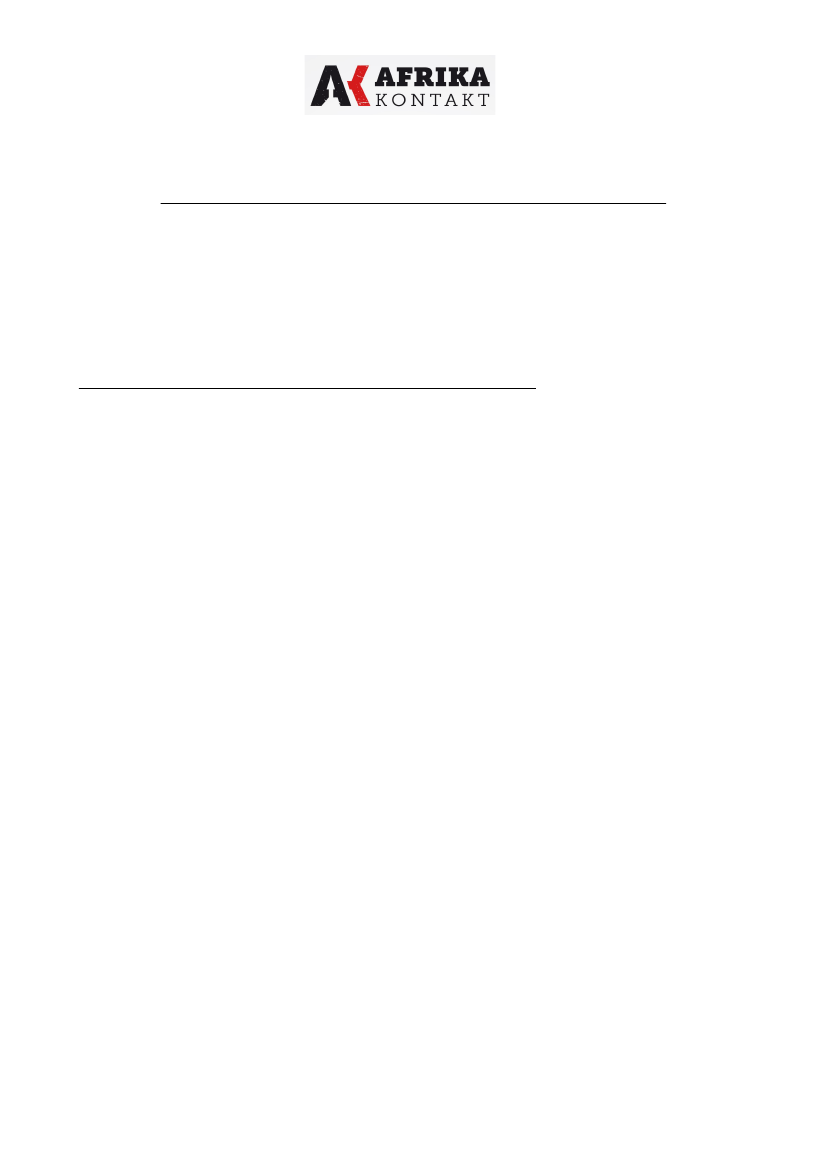
Denmark and Zimbabwe 08-10-2014
Recommendations: Review of the DK-ZIM Partnership Policy
This paper presents recommendations by civil society organisations in Zimbabwe and their Danish partner Afrika Kontakt for
the necessary review of the Denmark-Zimbabwe Partnership Policy 2013-2015. A policy that the Danish Foreign Ministry has
decided to continue unchanged without a revision after 2015.
How the political situation has changed in Zimbabwe since the formulation of the policy:
Weak Opposition Parties
The main opposition political party; Movement for Democratic Change (MDC) led by Morgan Tsvangirai is disintegrating into
several smaller factions as they fail to cope with the electoral shock of the July 31 electoral result that saw a majority ZANU-PF
win.
Weak Civil Society
Civil society has been left weakened by a lack of both a coherent strategy to mobilise and organise the people against ZANU-PF
dominance in the face of splitting in the major opposition party (MDC), and limited funding from development partners. This is
notwithstanding the fact that the new constitution has brought with it new opportunities that the people could use to demand
an accountable and transparent state.
Ineffective Majority Government
The aftermath of the July 2013 election saw a majority ZANU-PF government formed (ZANU-PF constitutes 2/3 of the
parliament), which to date has proven ineffective as they fail to implement the new constitution and drive policies for
reconciliation, national healing and reviving the economy. Reports by independent institutions indicate that the unemployment
rate is above 80%.
No action on new constitution
The broad political consensus in the run-up to the referendum on a new constitution, could have provided the basis for a more
democratic society. But with ZANU-PF victory in the elections the implantation of the new constitution is not part of the political
agenda in Zimbabwe.